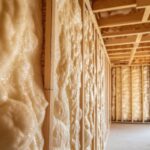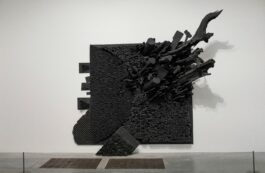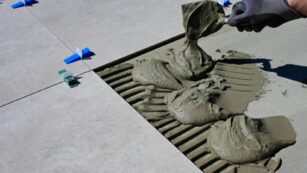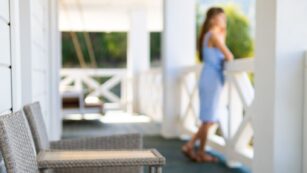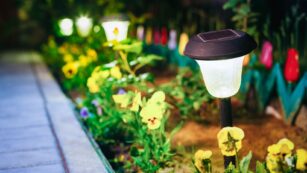If you are looking for a durable yet beautiful countertop material that will not break the bank, consider Corian or quartz countertops.
While many designers prefer the look of natural stone countertops such as granite or marble, they are not as practical when it comes to countertops that are also used as workstations, such as. B. in the kitchen or bathroom.
Two types of synthetic or artificial materials for countertops have become increasingly popular recently: Corian and quartz worktops.
Corian and quartz countertops are popular for their ability to mimic the look and feel of natural stone. They are an attractive, durable and more economical alternative to natural stone.
Corian and quartz are artificial or manufactured, they are made from a specific mixture of natural and artificial materials.
Although quartz is an ordinary natural crystalline mineral, quartz worktops are usually made from a mixture of this mineral with resins, dyes and some other substances. Quartz countertops are often called cast stone.
Corian is actually a brand of solid surface countertops developed by DuPont. It is a mixture of acrylic polymers and aluminium hydroxide, bound by resins and coloured with a mixture of pigments.
Although DuPont was the original manufacturer of Corian and is still known for its material, the Corian patent has expired and you can find similar materials from other manufacturers. Corian, which is not a DuPont material, is commonly referred to as a solid surface.
Corian or Quartz Countertop Design
Corian and quartz countertops were originally designed to mimic the look and feel of natural stone while eliminating one of its biggest drawbacks, its porous surface.
Corian and quartz are non-porous surfaces, meaning they do not have the microscopic pores found in natural stone. Because they are non-porous, they are easier to clean and more hygienic, which is an important factor when looking for materials for kitchen and bathroom countertops.
Corian and quartz are more resistant to stains than natural stone and other porous materials. If the liquid comes into contact with a porous surface, it may seep under the surface and cause staining or discoloration of the material.
In addition, the pores can become a breeding ground for bacteria and promote the growth of mold on the surface of the material. Therefore, non-porous Corian and quartz surfaces are considered more hygienic.
One of the reasons some people prefer Corian over quartz is the seamless look of Corian. Corina uses a glue that creates an almost invisible seam.
With quartz countertops, the seams are covered, and while they are not visible, they are not as invisible as the seams of Corian.
Some people also find it easier to work with Corian when designing a piece because it is easier to customize.
You can ask the manufacturer to shape or mold the material to your needs. There are over 100 colors of Corian, and you can even request a color from the manufacturer.
Quartz is heavier than Corian and weighs approximately 2.5 kg per square metre of 12 mm thick material. Corian of the same size and thickness weighs about 4.4 pounds.
Therefore, many people find that quartz is more durable and looks more real, especially if it is quartz made to mimic natural stone.
Corian lifetime compared to quartz
Quartz countertops are one of the hardest materials in the world, and quartz countertops are among the strongest and most durable. They are highly resistant to scratches.
Quartz is also more heat resistant than Corian. Although Corian can withstand temperatures around 212 F, the temperature of boiling water, at 250 F it begins to deform.
If you choose Corian countertops for your kitchen, make sure you don’t place hot pots and pans directly on the surface. You should also be careful to never cut anything directly on your Corian countertop, as this can cause scratches or scuffs on the surface.
Corian and quartz maintenance
Because Corian and quartz are non-porous materials, they are relatively easy to clean and maintain. If you spill something on a countertop made of one of these materials, you can simply wipe it up without damaging the surface, provided it’s not corrosive.
Because they are non-porous, you also don’t have to worry about waterproofing or refinishing Corian or quartz countertops. This is another advantage of these two materials over natural stone.
As mentioned earlier, Corian is slightly less durable than quartz, but that doesn’t necessarily mean it’s harder to maintain. Corian is more easily scratched than quartz, but it is also easier to repair or restore. By simply sanding and polishing the scratched surface, you can repair your Corian countertop yourself.
To keep both types of worktops clean, simply wipe them down regularly with a soft, damp cloth and a non-abrasive cleaning agent. As mentioned above, bacteria, fungi and mildew do not grow on Corian and quartz. So you don’t have to worry about using an anti-bacterial or anti-fungal cleaner or a mold and mildew cleaner.
Corian or quartz countertop costs
The price of quartz is slightly higher than that of Corian. The price may vary depending on the style or color of the chosen material.
Corian countertops typically cost between $40 and $140 per square foot to install. Installation of quartz costs about $50 to $120 per square foot.
Is quartz or corian better?
If you really want countertops that look and feel like natural stone, quartz tends to be a bit more realistic than Corian.
Corian has a very smooth and modern look. Some people also like Corian because it is easy to shape, so it can be customized and molded into different shapes. For example, you can shape a corian countertop so that it has a built-in cutout for the sink.
Because it is slightly more durable and heat resistant than Corian, quartz may be a better option when you are installing kitchen countertops.
For more information on this topic, see our page on solid surface countertops and quartz countertops.
frequently asked questions
Which worksheet is best: Quartz or Corian?
Corian countertops were developed in response to laminate, a much weaker and lower quality option. Corian lasts longer than laminate, but it can’t match the strength and durability of quartz. Quartz is resistant to scratches, mold and mildew, while Corian is not.
Corian is not in fashion?
Corian (developed by DuPont) was the first solid surface material to come on the market. It was first sold in 1971 in one color. The brand still exists and now produces over 100 colours. … In terms of durability, Corian tends to be more easily damaged by hot surfaces than natural stone.
Can you put a hot pan on Corian?
Although Corian® solid surface is heat resistant, as with all Corian® solid surface materials, it is important to minimize direct exposure to heat to protect surfaces and investments. Important – Do not place hot pots, pans, etc. directly on the work surface.
Related Tags:
corian vs quartz countertops pricecorian countertopscorian vs silestonecorian vs granitecorian or quartz for bathroomcorian countertops colors,People also search for,Feedback,Privacy settings,How Search works,Corian,Quartz,Formica,Granite,Marble,Avonite,See more,Caesarsto…,Cambria,Silestone,OKITE®,Hanstone Quartz,Micro‑Star International,corian vs quartz countertops price,corian countertops,corian vs silestone,corian vs granite,corian or quartz for bathroom,corian countertops colors,corian countertops cost,corian quartz overviews




